



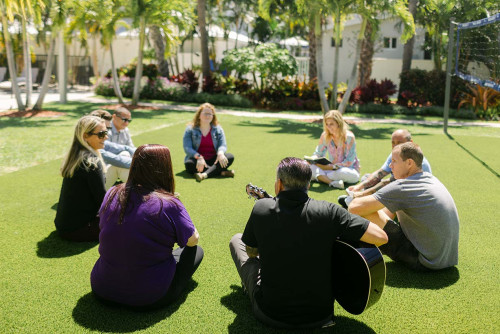




Beachway Therapy Center
Verified Center
This provider's information has been quality-checked by Recovery.com's Research Team for accuracy and completeness, including center verification through appropriate third-party organizations.
Treatment Focus
This center treats substance use disorders and mental health conditions. You'll receive individualized care catered to your unique situation and diagnosis, learn practical skills for recovery, and make new connections in a restorative environment.
Primary Level of Care
Offering intensive care with 24/7 monitoring, residential treatment is typically 30 days and can cover multiple levels of care. Length can range from 14 to 90 days typically.
Treatment Focus
This center treats substance use disorders and mental health conditions. You'll receive individualized care catered to your unique situation and diagnosis, learn practical skills for recovery, and make new connections in a restorative environment.
Primary Level of Care
Offering intensive care with 24/7 monitoring, residential treatment is typically 30 days and can cover multiple levels of care. Length can range from 14 to 90 days typically.
Provider's Policy
Beachway Therapy Center works with most private health insurance plans, which can cover the cost of treatment after deductible has been met. Our admissions team would be happy to help walk you through the process from verifying benefits to intake.
Beachway Therapy Center
Beachway Therapy Center
About Beachway Therapy Center
Since 2008, Beachway has helped individuals overcome trauma, mental health challenges, and substance use disorders through deeply personalized, evidence-based care. Offering a full continuum of treatment, from medical detox and residential programs to outpatient therapy and long-term aftercare, Beachway provides support at every stage of recovery.
Face the Truth and Find Strength in Being Understood
Treatment here goes far beyond stopping the behavior—it’s about uncovering the “why” behind it. Located in West Palm Beach, Beachway’s team of professionals work together to create individualized plans that treat the whole person. Clients begin by breaking through denial and old coping patterns in a setting built on honesty. Therapy here is relational; people learn that they’re not alone, that their pain makes sense, and that they can heal.
Recharge in the Sunshine
Just minutes from the ocean, the campus blends calm and comfort with all the little touches that help people feel at ease—private or shared suites, a pool, a fitness area, and cozy outdoor spaces to unwind. Days are balanced with wellness activities, from yoga and massage to art, music, and time on the water. It’s peaceful, sunlit, and full of warmth.
Keep Recovery Strong after Treatment
Beachway’s outpatient and aftercare programs are a vital link in the recovery journey. Once someone transitions from higher-level care, the team keeps the door open with customized outpatient options, ongoing therapy, alumni support, and real-world skill-building. With this backing, clients stay supported while re-entering life and building a foundation of sobriety and wellness.

Highlights from the Center
Highlights
These highlights are provided by and paid for by the center.
Equine Therapy
Customized Treatment Plans
Pool
Trauma Treatment
Center Overview
Treatment Focus
This center treats substance use disorders and mental health conditions. You'll receive individualized care catered to your unique situation and diagnosis, learn practical skills for recovery, and make new connections in a restorative environment.
Joint Commission Accredited
The Joint Commission accreditation is a voluntary, objective process that evaluates and accredits healthcare organizations (like treatment centers) based on performance standards designed to improve quality and safety for patients. To be accredited means the treatment center has been found to meet the Commission's standards for quality and safety in patient care.

Beachway Therapy Center
Insurance Accepted
Cash Pay Rates
Estimated Cash Pay Rate
Center pricing can vary based on program and length of stay. Contact the center for more information. Recovery.com strives for price transparency so you can make an informed decision.




Recovery.com Verified Listing
Recovery.com verified that the name, location, contact information and license to operate for this treatment provider are valid and up-to-date.

Joint Commission Accredited

Licensed by Florida DCF

NAATP Member
Recovery.com is an independent, third-party mental health resource. Verification does not imply endorsement and does not guarantee the quality of treatment services.
Meet Your Care Team

Dr. Duy Nguyen
Medical Director
D.O.

Heather Baker-Carr
Chief Operating Officer
MS, LMHC

Carrie Carlton
Clinical Director
LCSW, QS, CCTP

Brandon Lutman
Trauma Program Specialist
MSW, CTP, CAP, EMDR

Dina Sagarese-Coleman
Family Therapist
LMFT

Deborah McNamara
Counselor
CAC

Brian McSwain
Lead Therapist
LMHC
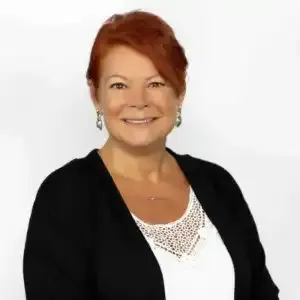
Laura Ward
Counselor
LMHC, CAP, EMDR
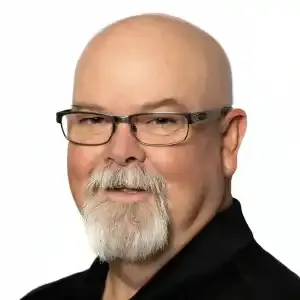
Troy Chappell
Christian Track Facilitator

Wendy Happ
Counselor
MS, LMHC

John Reardon
Admissions Director

Helana Cabral
Community Relations Manager

Loren Miller
Chief Nursing Officer
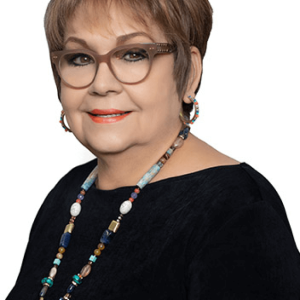
Haydee (Gigi) Cabrera
Program Specialist
LMHC, CCTP, CAP, CST, EMRD: Trauma
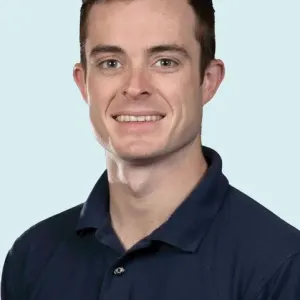
Daniel Gibson
Case Maanger
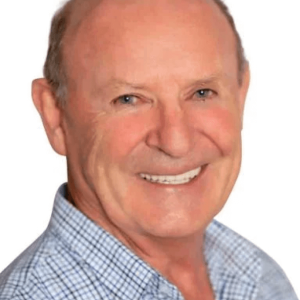
Denis Holmes
Chief Executive Officer
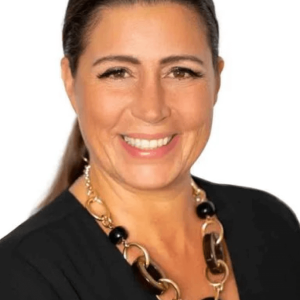
Pamela Egan
Chief Financial Offer
BAS

Chef Rocky
Executive Chef
Your Care Options
Specializations
Spiritual Emphasis
Spirituality connects patients to a higher power and helps strengthen their recovery, hope, and compliance with other treatment modalities.
Alcohol
Using alcohol as a coping mechanism, or drinking excessively throughout the week, signals an alcohol use disorder.
Bipolar
This mental health condition is characterized by extreme mood swings between depression, mania, and remission.
Equine Therapy
Guided interactions with trained horses, their handler, and a therapist can help patients improve their self-esteem, trust, empathy, and social skills.
Post Traumatic Stress Disorder
PTSD is a long-term mental health issue caused by a disturbing event or events. Symptoms include anxiety, dissociation, flashbacks, and intrusive thoughts.
Trauma
Some traumatic events are so disturbing that they cause long-term mental health problems. Those ongoing issues can also be referred to as "trauma."
First Responders Program
Paramedics, police officers, firefighters, and others join in a specific First Responders program, usually focused on trauma, grief, and work-life balance.
Who We Treat
Executives
Executive treatment programs typically directly support the needs of people who manage businesses and may provide flexible schedules and office space to allow work during treatment.
LGBTQ+
Addiction and mental illnesses in the LGBTQ+ community must be treated with an affirming, safe, and relevant approach, which many centers provide.
Men and Women
Men and women attend treatment for addiction in a co-ed setting, going to therapy groups together to share experiences, struggles, and successes.
Midlife Adults
For adults ages 40+, treatment shifts to focus on the unique challenges, blocks, and risk factors of their age group, and unites peers in a similar community.
Pregnant Women
Addiction and mental health treatment meets the clinical and psychological needs of pregnant women, ensuring they receive optimal care in all areas.
Professionals
Busy, high-ranking professionals get the personalized treatment they need with greater accommodations for work, privacy, and outside communication.
Veterans
Patients who completed active military duty receive specialized treatment focused on trauma, grief, loss, and finding a new work-life balance.
Treatment Services
Day Treatment
In a PHP, patients live at home but follow an intensive schedule of treatment. Most programs require you to be on-site for about 40 hours per week.
Intensive Inpatient
The highest level of care, medically managed intensive inpatient services provides 24-hour nursing and physician care.
Detox
Detox fully and safely removes toxic substances from the body, allowing the next steps in treatment to begin with a clean slate.
Intensive Family Program
Some rehabs offer intensive programs for loved ones. Group and individual therapy sessions help everyone heal, and improve family dynamics.
Intensive Outpatient Program
In an IOP, patients live at home or a sober living, but attend treatment typically 9-15 hours a week. Most programs include talk therapy, support groups, and other methods.
Licensed Primary Mental Health
Some primary care providers offer mental health diagnosis and treatment. This can prevent patients from developing more serious conditions.
Outpatient
During outpatient rehab, patients attend a structured treatment program while continuing to live at home.
Residential
In a residential rehab program, patients live onsite, with access to daily treatment and 24-hour care. An average stay is 30-90 days.
Retreat
These curated experiences promote physical, mental, and spiritual well-being, and provide a break from the busy pace of daily life.
Approaches
Evidence-Based
A combination of scientifically rooted therapies and treatments make up evidence-based care, defined by their measured and proven results.
Experiential
Expressive tools and therapies help patients process past situations, learn more about themselves, and find healing through action.
Holistic
A non-medicinal, wellness-focused approach that aims to align the mind, body, and spirit for deep and lasting healing.
Therapies
1-on-1 Counseling
Patient and therapist meet 1-on-1 to work through difficult emotions and behavioral challenges in a personal, private setting.
Meditation & Mindfulness
A practiced state of mind that brings patients to the present. It allows them to become fully aware of themselves, their feelings, and the present moment.
Trauma-Specific Therapy
This form of talk therapy addresses any childhood trauma at the root of a patient's current diagnosis.
Rational Emotive Behavior Therapy
A type of cognitive therapy that identifies negative self-defeating thoughts and behaviors, rewriting beliefs to be positive, empowering, and present.
Animal Therapy
Animals can inspire trust and self-worth. In this experiential therapy, guided interactions are used to improve social skills and emotion regulation.
Art Therapy
Visual art invites patients to examine the emotions within their work, focusing on the process of creativity and its gentle therapeutic power.
Equine Therapy
Guided interactions with trained horses, their handler, and a therapist can help patients improve their self-esteem, trust, empathy, and social skills.
Conditions We Treat
Bipolar
This mental health condition is characterized by extreme mood swings between depression, mania, and remission.
Obsessive Compulsive Disorder (OCD)
OCD is characterized by intrusive and distressing thoughts that drive repetitive behaviors. This pattern disrupts daily life and relationships.
Post Traumatic Stress Disorder
PTSD is a long-term mental health issue caused by a disturbing event or events. Symptoms include anxiety, dissociation, flashbacks, and intrusive thoughts.
Trauma
Some traumatic events are so disturbing that they cause long-term mental health problems. Those ongoing issues can also be referred to as "trauma."
Substances We Treat
Alcohol
Using alcohol as a coping mechanism, or drinking excessively throughout the week, signals an alcohol use disorder.
Benzodiazepines
Benzodiazepines are prescribed to treat anxiety and sleep issues. They are highly habit forming, and their abuse can cause mood changes and poor judgement.
Co-Occurring Disorders
A person with multiple mental health diagnoses, such as addiction and depression, has co-occurring disorders also called dual diagnosis.
Cocaine
Cocaine is a stimulant with euphoric effects. Agitation, muscle ticks, psychosis, and heart issues are common symptoms of cocaine abuse.
Drug Addiction
Drug addiction is the excessive and repetitive use of substances, despite harmful consequences to a person's life, health, and relationships.
Heroin
Heroin is a highly addictive and illegal opioid. It can cause insomnia, collapsed veins, heart issues, and additional mental health issues.
Methamphetamine
Methamphetamine, or meth, increases energy, agitation, and paranoia. Long-term use can result in severe physical and mental health issues.
Opioids
Opioids produce pain-relief and euphoria, which can lead to addiction. This class of drugs includes prescribed medication and the illegal drug heroin.
Prescription Drugs
It's possible to abuse any drug, even prescribed ones. If you crave a medication, or regularly take it more than directed, you may have an addiction.
Languages
Aftercare
Care Designed for Your Needs
Personal Amenities
Amenities
Special Considerations
Clients can bring their own pet(s)
For greater comfort and healing, pet-friendly treatment centers welcome dogs and animal companions to stay with their owners while they attend treatment.
Executive Program
Addiction and mental health treatment for executives typically involves high discretion, greater technology access, and more private, 1-on-1 care.
Flexible technology policies
Centers with flexible technology policies allow professionals to stay in touch with work and give patients a greater sense of connection and normalcy.
Gender-specific groups
Patients in gender-specific groups gain the opportunity to discuss challenges unique to their gender in a comfortable, safe setting conducive to healing.
Activities
Yoga
Yoga is both a physical and spiritual practice. It includes a flow of movement, breathing techniques, and meditation.
Off-Site Activities
Off-Site Amenities
Learn More About the Center
Understanding Trauma Therapy
Discover how trauma therapy can help someone feel safe in their own body.
Using Neurotherapy to Treat Addiction
Learn how neurotherapy can retrain the brain’s reward system and become a powerful ally in healing addiction.
Adult Children of Alcoholics
Uncover how growing up around alcoholism can quietly shape mindset and healing path.
Rewire the Brain after Addiction
Read about how the brain can be rewired after addiction.
What people are saying
Treatment
4.6
Accommodations
4.4
Food & Nutrition
4.3
Value
4.4
Thijs
Reviewed 11/14/24
Review from Rehabs.com
Jessica
Reviewed 09/15/23
Review from Rehabs.com
D Brill
Treatment in 2022 • (30 days) • Reviewed 12/06/22
Loved One of a Former Client
TJ
Reviewed 04/03/24
Review from Rehabs.com
Samuel
Reviewed 12/18/23
Review from Rehabs.com





